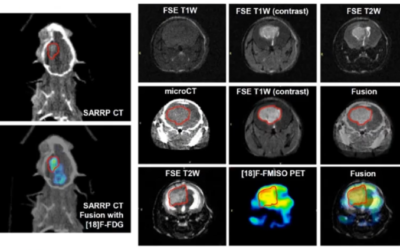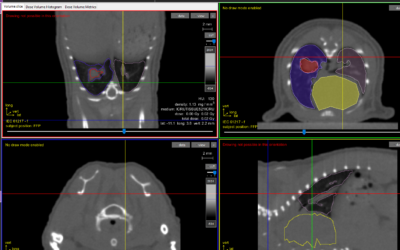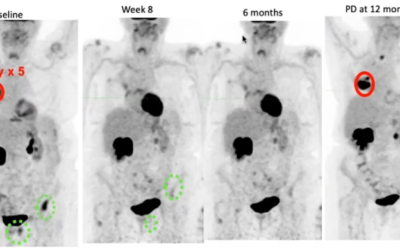Efficient and error-free DNA repair is critical for safeguarding genome integrity, yet it is also linked to radio- and chemoresistance of malignant tumors. miR-34a, a potent tumor suppressor, influences a large set of p53-regulated genes and contributes to p53-mediated apoptosis. However, the effects of miR-34a on the processes of DNA damage and repair are not entirely understood. We explored tet-inducible miR-34a-expressing human p53 wild-type and R273H p53 mutant GBM cell lines, and found that miR-34a influences the broad spectrum of 53BP1-mediated DNA damage response. It escalates both post-irradiation and endogenous DNA damage, abrogates radiation-induced G 2/M arrest and drastically increases the number of irradiated cells undergoing mitotic catastrophe. Furthermore, miR-34a downregulates 53BP1 and inhibits its recruitment to the sites of DNA double-strand breaks. We conclude that whereas miR-34a counteracts DNA repair, it also contributes to the p53-independent elimination of distressed cells, thus preventing the rise of genomic instability in tumor cell populations. These properties of miR-34a can potentially be exploited for DNA damage-effecting therapies of malignancies.
Kofman AV, Kim J, Park SY, Dupart E, Letson C, Bao Y, Ding K, Chen Q, Schiff D, Larner J & Abounader R.
Download Paper
SARRP Research Spotlight: Dr. George Wilson
George Wilson, PhD, Chief, Radiation Biology, William Beaumont Hospital Radiation Biology focuses on translational research in the areas of new treatments, combined modalities, and stem cell biology. The group has a heavy emphasis on incorporating molecular,...






